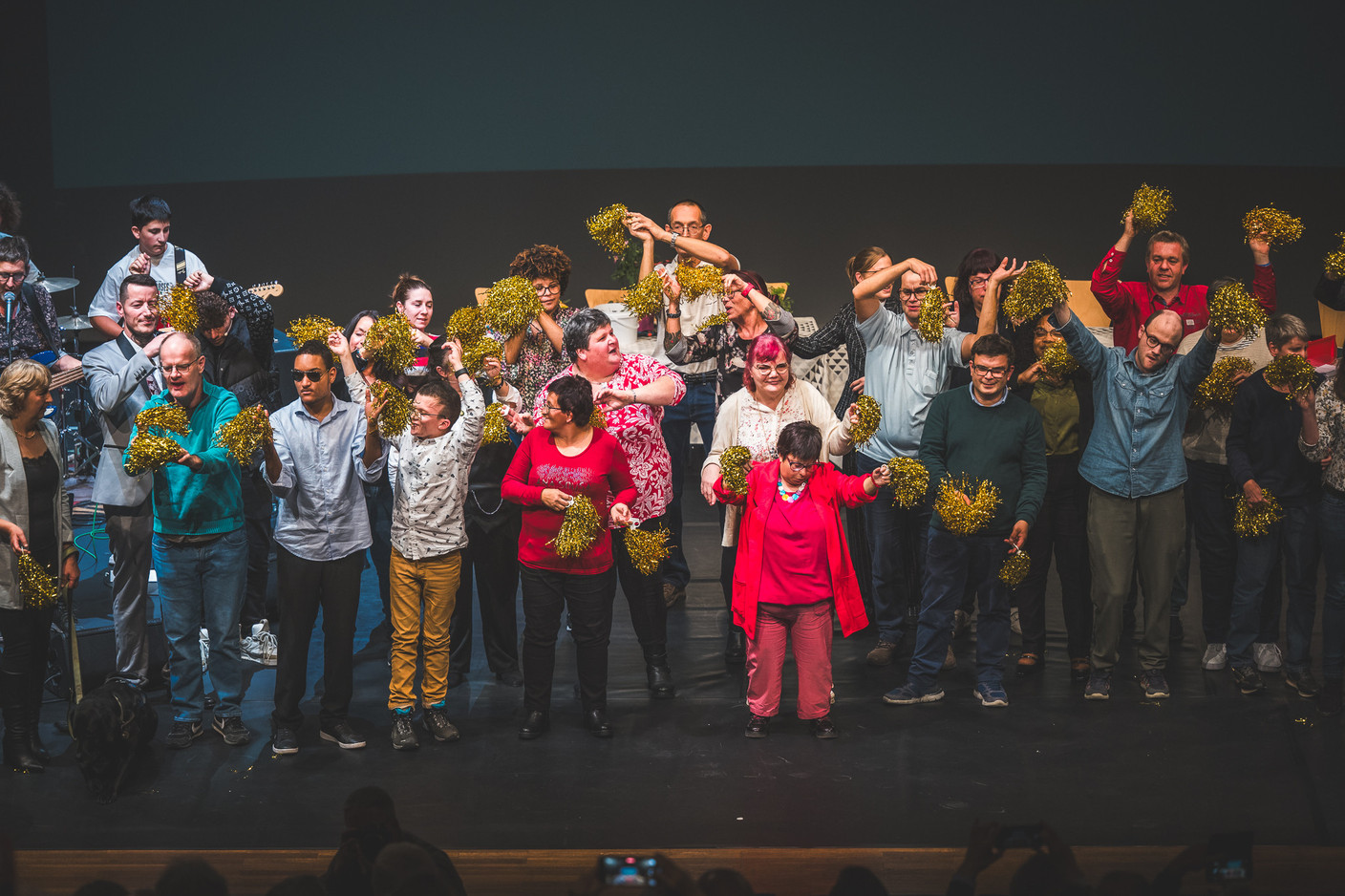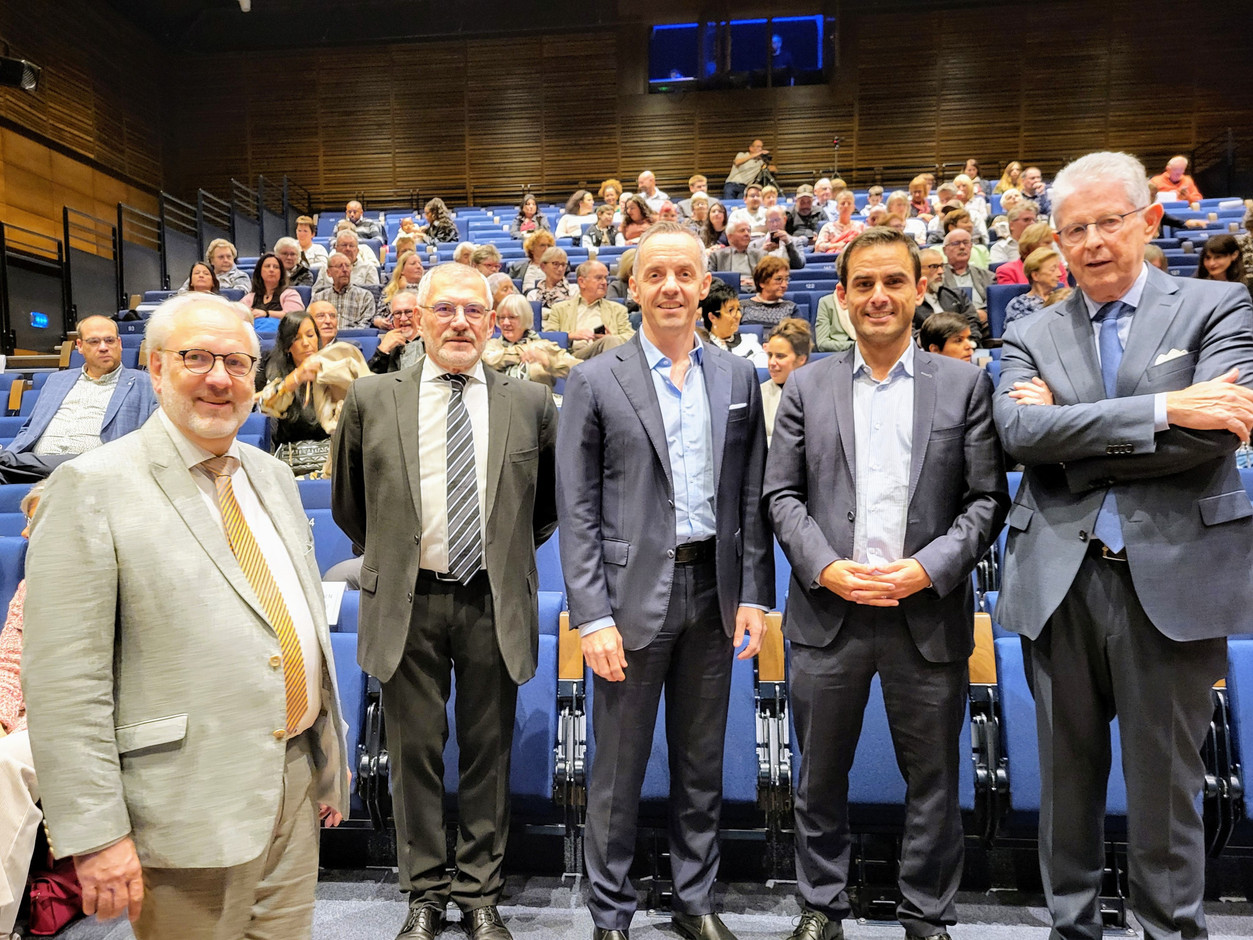Over the past 20 years, the Bieschbecher vocational inclusion workshop in Mersch (Rollingen) has carved out a place for itself in the economic fabric. It currently employs 52 people, most of them visually impaired, who work in one of the workshop’s four main divisions. The workshop offers several activities, adapted to each disabled worker. “In each division, there are sections. We have a subcontracting section for other companies. This might be a printer who needs to assemble documents by hand, or we might be making bags for St Nicholas Day. These assignments require preparation beforehand to set up guidelines for the people who will be doing the work. We also have a gardening and maintenance workshop, and a ceramics workshop where the creations produced are sold in supermarkets such as Cactus. We also have a pastry-making and cooking workshop, which most often prepares the small cakes you will find with your coffee,” explains Thierry Lutgen, director of the Fondation Lëtzebuerger Blannevereenegung.
The employees at the Bieschbecher Atelier all receive a state-funded inclusion wage and are employed on open-ended contracts. This gives them the opportunity to work in a job that is compatible with their disability. And why not, afterwards, join the ‘classic’ job market. “In theory, all the workshops are designed to guide people towards the first job market. On the other hand, we have people who have come to us from the primary labour market and who are redirected towards us, often because of their residual abilities,” stresses the director. These are people who would no longer be able to carry out all or part of their duties on the labour market, and who will therefore be able to benefit from a job adapted to their state of health.
The challenge of pace and skills
The population supported by the Biechbechter Atelier often suffers from multiple disabilities, in addition to visual impairment. This can make their entry into the mainstream labour market more complicated, if not sometimes impossible. “For them, our workshop will be their final workplace, although they will be able to progress within the workshop. We manage to guide one person into the first job market every five years or so,” explains Lutgen. But that doesn’t mean that the labour market doesn’t want to take them on, or that the atelier isn’t guiding employees in the right direction. The problem is much more complicated, according to the director.
“It is sometimes difficult for these employees to keep up with the pace of the first job market, given their level of skills. The second problem is that it is sometimes impossible to adapt the workstation to the employee’s needs, for example in terms of working hours or accessibility.” Will the employee’s adapted transport timetable fit in with his or her working hours? Will it be possible for the employee to bring their guide dog? Will it be easier for them to eat on site? These are just some of the questions that arise when integrating a disabled employee. And there could be solutions to facilitate their integration. “What I could imagine is social enterprises with different levels of output, depending on the abilities of the disabled workers.”
However, “there are many blind people working in the primary labour market, and not all of them have passed through our services. The Institute for the Visually Impaired is also working hard to train these people. But blind people are no less intellectually developed than the rest of us! Sometimes, they just need an extra tool,” says the director, who suggests another approach. “We could imagine a kind of introduction to work that meets the needs of a company and takes into account the tools they have available, so as to prepare the employee, without the company having to deal with this directly. This would give our sector the opportunity to support these employees on a regular basis, to position itself as a coach, a partner. I think it would work,” he argues.
Plans for an inclusive restaurant and pop-up store
As long as we don’t forget one key element: “a disabled person is not an object! In discussions, we tend to forget that they also have their own desires, their own vision of life. Under normal circumstances, employees and employers don’t always see eye to eye. Imagine when there’s the added problem of a disability to deal with. For the employer, it can also represent a double burden. It can still work when the employee has a good partner, for example, with a certain sensitivity. But I don’t think our sector is responsive enough to tailor solutions to each individual.”
Despite these difficulties, the company still has plenty of ambitions, and a number of projects have already been launched. These include an extension to the Rollingen premises, which is due to be funded in large part by the family affairs ministry. Work is due to start in 2025. This will make it possible to open an inclusive restaurant. “We also plan to open a pop-up store in Bissen, where the municipality is playing ball by providing us with a space at a lower rent. We are currently in the process of obtaining approval for a possible opening in the spring of next year,” says Lutgen.
This article was originally published in .






